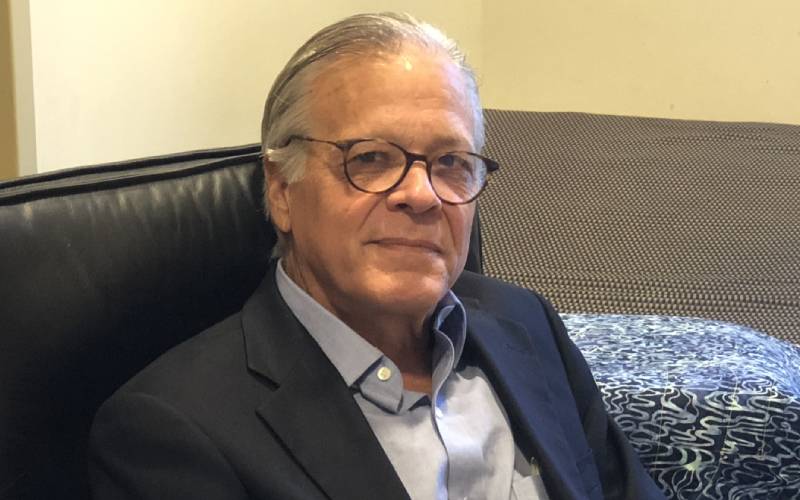“I hope that out of these tragedies there is an opportunity not only to express the intensity of our reactions but to get back down to the detailed business of understanding and unpacking the nature and contributions to the problems. We also can revisit and learn new solutions and achieve greater mastery. This is as much about the work that we do in our psychoanalytic consulting rooms as it is about the work that we attempt to do in the community.”

Steven Marans, Ph.D
New Haven
Episode Description:
Dr. Harvey Schwartz welcomes Dr. Steven Marans, a psychoanalyst who has devoted his career to understanding police departments, the community, and the interface between both with a psychoanalytic perspective.
Dr. Marans is a child and adult psychoanalyst and is the Harris Professor of Child Psychiatry and Professor of Psychiatry at the Child Study Center and Department of Psychiatry, Yale University School of Medicine. He is the director of the National Center for Children Exposed to Violence and the founder of the Child Development-Community Policing Program.
Dr. Marans is also co-developer with Dr. Steve Berkowitz of the Child and Family Traumatic Stress Intervention, a brief, early treatment that has proven effective in reducing post-traumatic disorders in children exposed to traumatic events. Under the auspices of a SAMHSA grant, this intervention is being rolled out nationally through the National Child Traumatic Stress Network.
Over the past 20 years, Dr. Marans has worked closely with the White House, U.S. Department of Justice, U.S. Department of Health and Human Services, U.S. Department of Educations, and members of Congress on issues related to responding to the trauma associated with violence in homes and communities, on terrorism and natural disasters and has served on national advisory groups and commissions regarding these issues.
Dr. Marans also continues to see children, adolescents, and adults for clinical consultations, psychotherapy, and psychoanalysis. He teaches and supervises child psychiatry, psychology, and social work fellows in psychodynamic evaluation and treatment.
Key Takeaways:
[9:05] Dr. Marans talks about the clinical phenomenon in times of crisis.
[12:05] Dr. Marans shares what goes through his mind when hearing the news about police violence.
[15:52] The police see aspects of our community that civilians don´t see.
[17:55] The challenges of entering the professional role of someone else.
[18:55] Narrowness of thinking prevents us from understanding what it is like to be a community member who is afraid of the police, as well as it obstructs our ability to appreciate what is like to be policemen and women involved in dangerous situations.
[19:50] Our thinking becomes oversimplified when we are most upset.
[21:55] Dr. Marans explores the implications of the idea of “us vs them”.
[25:55] The way in which the community perceives the police has shifted.
[29:31] Dr, Marans explains what happens when reality confirms the negative pre-conceptions of others.
[33:31] Vulnerability, anxiety and stress can narrow the sense of options and responses on both ends.
[36:02] “The best way to begin the job is to meet as many people as you can.”
[40:30] When we are at our most overwhelmed, we have the least amount of resources available to bring the level of distress under control.
Mentioned in This Episode
IPA Off the Couch – www.ipaoffthecouch.org
Childhood Violent Trauma Center, Yale School of Medicine
Recommended Readings
Phenomena of Childhood Trauma and Expanding Approaches to Early Intervention. International Journal of Applied Psychoanalytic Studies 10(3): 247-266 (2013)
Listening to Fear: Helping Kids Cope from Nightmares to the Nightly News. NY: Henry Holt and Co. (2005)
Psychoanalysis on the Beat: Children, Police, and Urban trauma. Psychoanalytic Study of the Child, Vol 51: 522-541 (1996)

Lovely interview! Thank you!
Thank you so much for the informative and enriching discussion. Yet another memorable interview with Dr. Marans. The work he has done and continues to do is so admirable and inspiring.
A very intersting and fruitful interview.
Thank you so much for both of you.